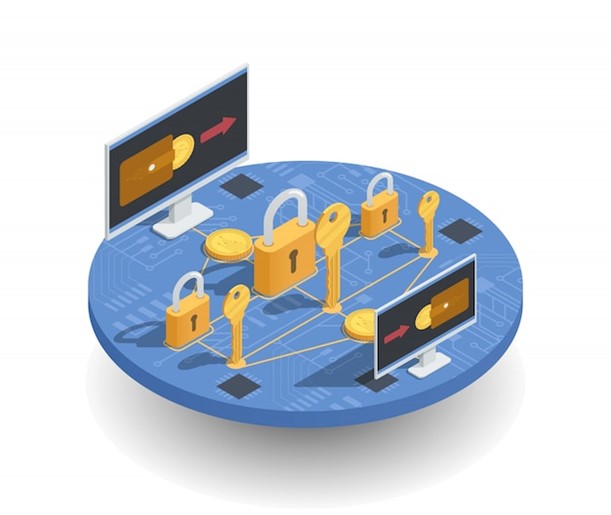In today’s digital age, the protection of personal data and digital identity has become a critical concern. As more aspects of our lives move online, from financial transactions to social interactions, the need for secure and trustworthy digital identity solutions is paramount. Cryptocurrencies, with their underlying technology of blockchain, are emerging as potential game-changers in the field of digital identity and personal data protection. In this article, we will explore the role of cryptocurrencies in addressing these challenges and their potential impact on safeguarding our online identities.
- Decentralized Identity Management: One of the key features of cryptocurrencies is their decentralized nature. Traditional digital identity systems often rely on centralized authorities to verify and manage personal data. This centralization poses risks such as data breaches, identity theft, and single points of failure. Cryptocurrencies, built on blockchain technology, enable the concept of decentralized identity management. With decentralized identity, individuals have more control over their personal data and can choose what information to share and with whom. This approach reduces reliance on centralized authorities and enhances privacy and security.
- Self-Sovereign Identity: Cryptocurrencies promote the concept of self-sovereign identity, empowering individuals to have complete control over their digital identities. With self-sovereign identity, individuals can create, manage, and authenticate their identities without relying on intermediaries or third-party institutions. Blockchain-based solutions provide the infrastructure for secure and tamper-proof identity verification, ensuring that individuals’ personal data remains private and under their control.
- Immutable and Verifiable Records: Blockchain technology, which underpins cryptocurrencies, offers immutable and verifiable records. Each transaction or interaction is recorded on the blockchain, creating a transparent and tamper-resistant audit trail. This feature can be leveraged in digital identity systems to maintain a secure and auditable record of individuals’ interactions, ensuring data integrity and providing a higher level of trust.
- Enhanced Security and Privacy: Cryptocurrencies employ cryptographic techniques to secure transactions and protect personal data. Through encryption and hashing algorithms, sensitive information is securely stored and transmitted, reducing the risk of unauthorized access or data breaches. Additionally, the decentralized nature of blockchain-based identity systems minimizes the reliance on single points of failure, making them more resilient to attacks and hacking attempts.
- Data Minimization and Selective Disclosure: Cryptocurrencies enable the principle of data minimization and selective disclosure. With traditional digital identity systems, individuals often have to disclose a substantial amount of personal information for verification purposes, which can expose them to privacy risks. Cryptocurrency-based solutions allow individuals to provide only the necessary information required for a specific transaction or interaction, minimizing the exposure of personal data and enhancing privacy.
- Trust and Interoperability: As cryptocurrencies gain wider adoption, they have the potential to establish a trust layer for digital identity and data protection. Blockchain-based identity systems can enable trust between parties without the need for intermediaries, enhancing efficiency and reducing reliance on centralized authorities. Moreover, the interoperability of cryptocurrencies allows for seamless identity verification and data sharing across different platforms and services, simplifying user experiences and improving overall security.
While the potential of cryptocurrencies in digital identity and personal data protection is promising, challenges remain. Scalability, usability, and regulatory frameworks are among the key areas that need to be addressed to ensure widespread adoption and integration with existing systems. Furthermore, the balance between privacy and regulatory compliance will require careful consideration to meet the requirements of various jurisdictions.
In conclusion, cryptocurrencies have the potential to revolutionize digital identity and personal data protection by introducing decentralized, secure, and self-sovereign identity solutions. By leveraging blockchain technology, individuals can have more control over their personal data, enhance security and privacy, and establish trust in online interactions. As the technology continues to evolve, cryptocurrencies are likely to play a significant role in shaping the future of digital identity and personal data protection, empowering individuals in the digital realm.










